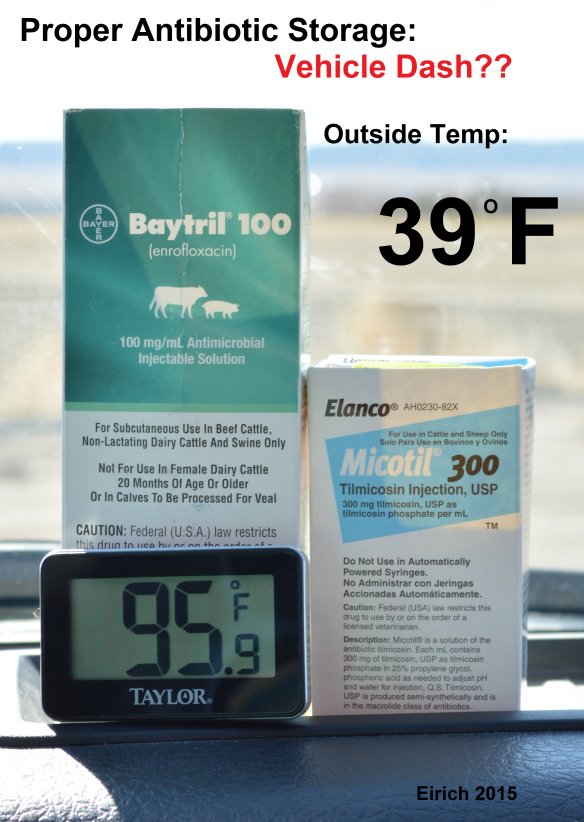
By Rob Eirich, Nebraska Beef Quality Assurance, Nebraska Extension
The beef community has been hearing the discussion about “Antibiotic Stewardship” throughout the past couple years. Is it really a new concept that we need to implement? As we review the principles of antibiotic stewardship, you see it is the basic guidelines set forth by Beef Quality Assurance (BQA) since it beginnings in the 1980’s.
The first step is the Veterinarian Client Patient Relationship (VCPR), producers need to maintain a strong relationship with their veterinarian. Within the context of this relationship, veterinarians and producers can develop a preventative herd health program specific to individual operations. The herd health program identifies a vaccination protocol to assist in preventing or minimizing the potential risk of animal health diseases. Cattlemen are committed to the care and well-being of their livestock, but there are times when diagnosis and treatment of sick animals are required. The VCPR should also establish treatment protocols for common diseases that the herd may encounter. The protocols will identify the proper antibiotic treatment for the diagnosis.
Once protocols are developed, proper use and dosage is high priority. The USDA Food and Drug Administration (FDA) require that all animal health products be labeled for treatment of specific diagnosis, dosage, administration method, withdrawal time, and storage. Reading and following the label is essential to proper treatment of animals. Producers must follow label or veterinarian’s prescriptions on all animal health products.
Today’s producer strives to give the best care possible to the animals entrusted into their care. They want to use antibiotics judiciously to minimize the risk of antibiotic resistance in animal and human health. As concerns have been voiced about antibiotic resistances within human medicine, the FDA has established guidelines for the industry related to antibiotics. These guidelines ask for more veterinarian oversight for fed antibiotics in the livestock industry with the Veterinary Feed Directive (VFD). VFDs are written veterinarian orders on usage, dosage, and administration of feed containing antibiotics. Producers will be required to have a VFD before purchasing and feeding antibiotics. Ionophores and non-antibiotic feed medications will not require these documents. The VFD ensures that producers are using these products for the prevention, control or treatment of diagnosis with no sub-therapeutic treatments.
As beef producers, it is important to have accurate records. Written protocols for preventive health and treatments should be kept for the integrity of a strong herd health program. Treatment records with administration date, diagnosis, product, dosage, and withdrawal time/date should be recorded and maintained for three years.
An element of antibiotic stewardship that is sometimes overlooked is the proper storage of products. All labels contain the proper storage location and temperature to guarantee the efficacy of the product. Products have a temperature range at which they should be stored, when temperatures fall below or rise above that range the effectiveness of that product is at risk. It is important to use a thermometer to check that storage areas are proper temperatures.
BQA and Antibiotic Stewardship must go hand in hand for the beef community to assure our consumers that we are committed to caring for healthy animals and producing safe, wholesome, quality beef products. By following BQA guidelines, producers are working every day on antibiotic stewardship for both animal and human health.
For more information about Nebraska Beef Quality Assurance or to get BQA certified, visit bqa.unl.edu or contact Rob Eirich, UNL Extension Educator and Nebraska Director of BQA at the UNL Panhandle Research and Extension Center 308-632-1230 or reirich2@unl.edu.
Beef Quality Assurance is a nationally coordinated, state implemented program that provides systematic information to U.S. beef producers and beef consumers of how common sense husbandry techniques can be coupled with accepted scientific knowledge to raise cattle under optimum management and environmental conditions. Eirich directs the program in the state of Nebraska, in a partnership between UNL Extension, Nebraska Cattlemen, and the Nebraska Beef Council.